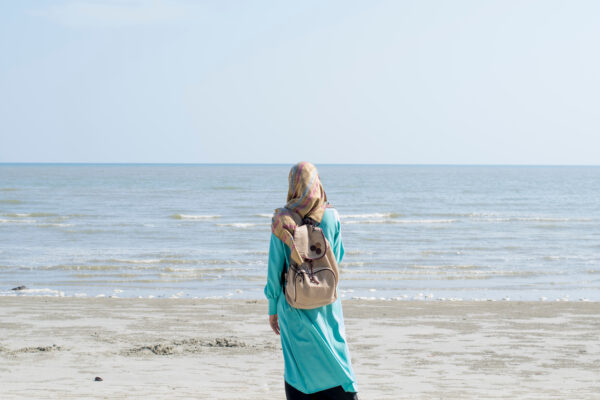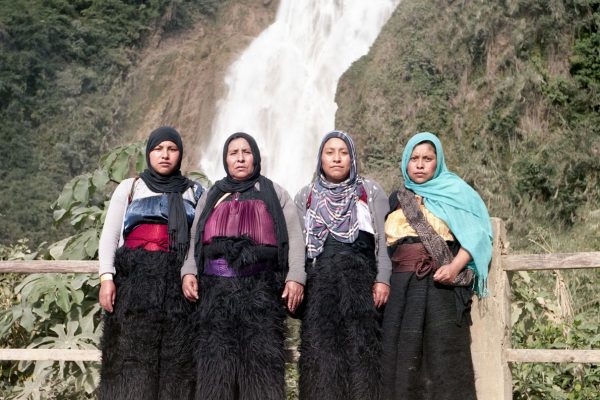“I believe that this is how we must approach sharing our sometimes misunderstood Islam in the Western world — with one foot forward and one hand reached out in an invitation of love.”
“I believe that this is how we must approach sharing our sometimes misunderstood Islam in the Western world — with one foot forward and one hand reached out in an invitation of love.”
This year for Eid, I was given the best possible present; my family — Muslim and non-Muslim alike — agreed to gather to sacrifice a lamb for Eid Al-Adha. What transpired was an occasion not soon to be forgotten, and an example of how as Muslims in the West we can create and blend beautiful Islamic traditions into our modern lives.
My sister’s farm in Southern Wisconsin sits on the bottom of rolling hills of soybeans and feed corn, punctuated by small homes. The population of her small town is Midwestern white, mainly Christian, and isolated from many alternative ethnicities or religions.
Similarly, my childhood background is of European American culture, and I am about as “white” as it gets. Yet, my life has twisted and wound in beautiful and unexpected ways, bringing me to where I am now — in my thirties, a convert, married to a Libyan man with whom I have two children.
This Eid the confluence of these vastly different parts of my identity met when my family agreed to participate in Eid Al-Adha. The holiday commemorates the devotion of Ibrahim to Allah and his willingness to sacrifice his son, Ishmael. God, seeing Ibrahim’s dedication, did not require Ibrahim to go through with killing his son. Instead, Allah asked Ibrahim to sacrifice a lamb.
Traditionally, the holiday is celebrated with a lamb sacrifice where two-thirds of the lamb meat is given as charity. In addition to remembering Ibrahim as the founder of Abrahamic faiths, it also calls upon us to renew our closeness and devotion to Allah and marks the Hajj season.
As my sister’s family raises sheep, the idea organically sprung up that we could sacrifice one of the lambs on the farm which my fifteen-year-old niece lovingly raises. With the combined experience of my father as a recreational deer hunter, my brother-in-law’s knowledge of butchering from previous farm harvests, and my husband’s direct experience with this ritual in Libya, we felt we were well equipped to create our own Eid Al-Adha celebration.
As the men would butcher, the women would cook and prepare meat, along with rolling dolmas, playing with the children, and taking a dip in the nearby river that meanders past the house.
What transpired was more than a magical day — SubhanAllah — the day felt truly blessed. We began the morning by prayer. Laying out multiple picnic blankets and pointing our feet southeast, I led my relatives in a short explanation of what to expect when praying salat. Then in my best Arabic, I recited two rakats inviting all who wished to participate.
For myself, this was the first time I had led a prayer for others and though my heart skipped a little in nervousness, my voice did not waver. At the end, my brother-in-law, a Quaker with some Buddhist leanings, chanted an extra prayer in Japanese, and our prayers lifted to the heavens along with eagle cries. Then, the halal sacrifice began.
Though I chose to stay back from the actual sacrifice, my brother-in-law was at the helm. Rehearsing “Bismillah” before taking his post, he settled into the demanding spiritual position of taking an animal’s life. As my father and husband held the ram down, the animal took the last breaths of its life and the first step of the sacrifice had transpired.
The butchering and preparation of the meat took nearly the entirety of the day. Thick in the summer heat, we kept snacks and games going to keep children occupied and bellies happy. Around 5 pm — as the Azan called on our cell phones for Asr prayer — we ate, but not before a quick blessing. Gathering everyone up, we circled around the kitchen. The faces present represented so many different parts of myself; who I was, and who I am becoming.
There stood my aunt who I lived with when I was in my early twenties, my parents who despite their Christian faith were willing to largely create the day, my peace activist sister and her husband, my Sufi-born beloved husband, all of the children, and my two closest Sisters who walk intimately with me on my spiritual path.
Saying my deepest thanks I turned the floor over to my father to lead us in prayer, bowing my head in much the same way I make dua today. Before us was a feast of food, but more importantly, was an opportunity to share faith together; to break bread in a way that was so relatable it transpired religion.
The beauty of the experience taught me that we get to create our walk as Muslims, and that to invite others to join gives so much opportunity for love and growth. As a convert, I had shared little previously with my family of my faith. This Eid I got to live the beauty that is Islam together with them.
Though I know the day all meant slightly different things to us — for my Iraq-vet brother-in-law it meant reconciliation; for my parents, it meant culinary adventure and some curiosity about my spiritual choices; for my husband, it meant a chance to honor tradition after having a new baby. But decidedly for all of us, it also meant a day of peace and a wish for peace between people of different walks and religions.
I believe that this is how we must approach sharing our sometimes misunderstood Islam in the Western world — with one foot forward and one hand reached out in an invitation of love. Celebrating this holiday has encouraged me as a convert to be more open about my faith with my family, and allowed for members in my family to ask questions they may not have felt comfortable asking about Islam. Sharing some of the most fundamental practices, like salat, with them, felt like a door opening.
Whatever your spiritual journey as a seeker of Allah, there is true power in remembering these important occasions of the Islamic calendar. There is also certain modernity we bring to these long-practiced traditions — a way to blend our time with the timelessness of Allah.
For our family, this meant a special day of love and food. In what ways have you created your own traditions around Muslim holidays, that you are proud of?





